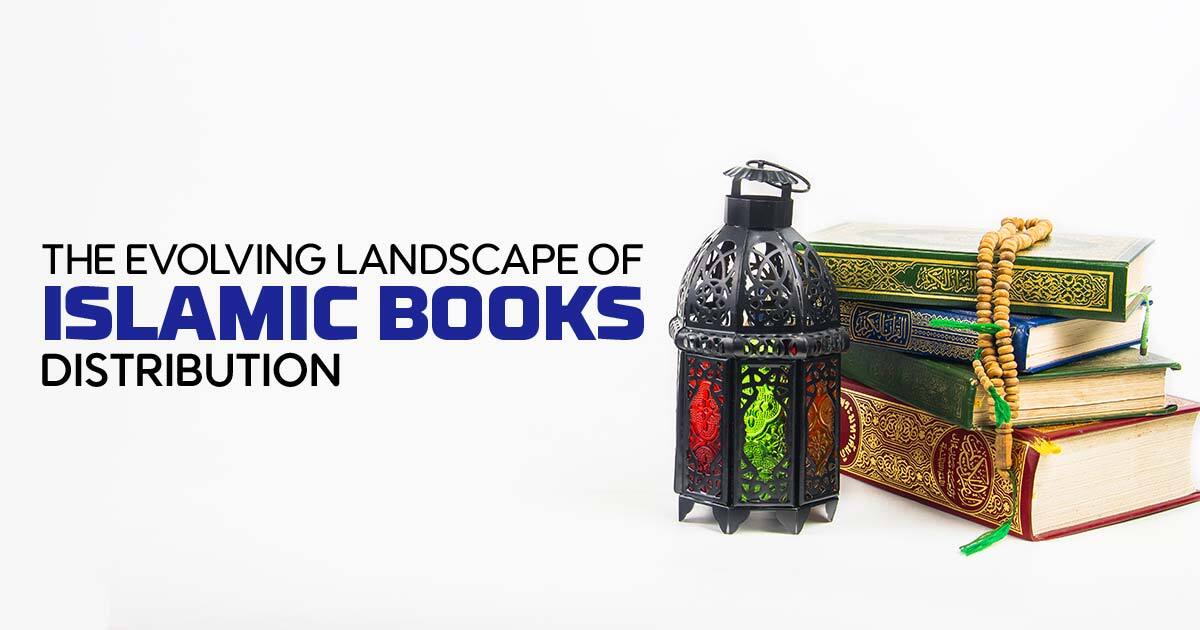The Prophet Muhammad (ﷺ) said, “Man Salaka Tariqan Yaltamِis fihi ‘ilman Sahhalla Allahu Lahu Tariqan ila al-Jannah”,”Whoever takes a path to seek knowledge, Allah will make the path to Paradise easy for him” (Sahih al-Bukhari, Hadith No. 192). This Hadith emphasizes the importance of knowledge acquisition in Islam. Traditionally, Islamic knowledge was disseminated through physical books and scholarly gatherings. However, the digital revolution has ushered in a new era of Islamic book distribution, offering exciting opportunities for Muslims worldwide to fulfill their religious obligation of seeking knowledge. This blog post explores this evolving landscape, examining the potential and challenges of digital platforms in making Islamic scholarship more accessible and convenient for readers in the digital age.
The Traditional Landscape of Islamic Book Distribution:
For centuries, Islamic book distribution relied on a well-established network of channels:
- Physical Bookstores: Local Islamic bookstores have served as the primary source for Muslims seeking religious texts, commentaries, and scholarly works. These stores often curate their collections based on local needs and preferences, fostering a sense of community and trust.
- Madrasahs and Mosques: Religious institutions have played a crucial role in disseminating knowledge by housing libraries and bookstores. These libraries offer curated selections catering to students and worshippers, providing easy access to essential Islamic literature.
- Print-on-Demand Services: This method has proven particularly valuable for smaller publishers. Print-on-demand allows them to make niche titles more readily available without the burden of large upfront printing costs.
- Word-of-Mouth Recommendations: Scholarly endorsements and community recommendations have long been a powerful driver of book sales within the Muslim community. Trusted scholars and educators can significantly influence purchasing decisions, ensuring the dissemination of well-respected works.
These traditional methods served the needs of the community effectively for generations. However, with the changing times, they also presented limitations:
- Geographic Restrictions: Access to specialized bookstores or libraries might be limited, especially in remote areas. This could restrict readers’ ability to find the specific resources they seek.
- Limited Inventory: Physical stores can only stock a finite number of titles due to space constraints. This can limit reader choice, particularly for those seeking less common or specialized works.
- Distribution Delays: Obtaining new or out-of-print books could be a slow and frustrating process. Traditional distribution channels might not have the resources or infrastructure to efficiently locate and deliver desired titles.
The Rise of Digital Platforms for Islamic Books: A New Era of Accessibility
The digital revolution has ushered in a paradigm shift in Islamic book distribution, reshaping the way knowledge reaches readers. Here’s a closer look at the benefits and challenges associated with this new era:
Benefits of Digital Distribution:
- Wider Accessibility: E-books and online bookstores allow readers worldwide to access a vast collection of Islamic literature, regardless of location. This eliminates geographical barriers and ensures that knowledge is readily available to anyone with an internet connection.
- Increased Choice: Digital platforms can host a much larger inventory compared to physical stores. Readers have access to a wider range of titles, catering to diverse interests and scholarly pursuits.
- Search Functionality: Robust search features enable readers to easily find specific titles, authors, or topics through keywords or advanced filters. This streamlines the discovery process and saves valuable time.
- Affordability: E-books are often cheaper than physical copies due to reduced printing and distribution costs. This makes Islamic knowledge more accessible to a wider audience, particularly for those with limited financial resources.
- Convenience: Digital books can be purchased and downloaded instantly, eliminating the need for physical travel to bookstores. This offers immense convenience, especially for busy individuals seeking flexible access to learning materials.
- Preservation: Digital storage helps safeguard valuable texts from wear and tear. Digital copies can be easily backed up and preserved for future generations, ensuring the long-term accessibility of important Islamic scholarship.
Challenges of Digital Distribution:
Despite the numerous benefits, digital distribution also presents certain challenges:
- Digital Divide: Not everyone has access to reliable internet connections or devices suitable for reading e-books. This can create a barrier to entry, especially in developing countries or remote areas with limited technological infrastructure.
- Preserving Authenticity: Ensuring the accuracy and authenticity of digital texts requires robust verification processes. With the ease of digital manipulation, it’s crucial to establish trust by partnering with reputable sources and scholars.
- Competition: The online marketplace is a crowded space, making it challenging for smaller publishers to stand out. Effective marketing strategies are essential to reach target audiences and compete with established players.
- Marketing and Promotion: Reaching readers in the digital space requires a shift in marketing strategies. Traditional methods may not be as effective online. Social media marketing, influencer partnerships, and targeted online advertising are crucial for reaching potential readers.
- Copyright Protection: Digital piracy remains a concern, potentially impacting revenue streams for publishers. Implementing strong copyright protection measures and fostering a culture of respect for intellectual property are essential.
Conclusion:
The digital revolution has transformed Islamic book distribution, offering wider access, increased choice, and convenient learning. While challenges like the digital divide and authenticity verification remain, Islamic publishers who embrace new technologies and effective marketing can ensure Islamic knowledge continues to illuminate the lives of Muslims worldwide.
FAQs About The Evolving Landscape of Islamic Book Distribution:
Where can I find reliable Islamic e-books?
Check websites of established Islamic publishers and bookstores. Look for platforms like Al-Kitab (https://alkitab.com/) dedicated to Islamic resources, or websites of Islamic universities and organizations.
How can I trust what I read online?
Seek out e-books from reputable publishers with a history of scholarly works. Look for verification badges or certificates on the platform. Reviews from trusted sources can also offer insights.
Are there options for visually impaired readers?
Yes, some publishers offer audiobooks or e-books compatible with screen readers. Platforms might have text-to-speech functionality as well.
How can I stay updated on new Islamic book releases?
Follow social media pages of publishers and Islamic bookstores. Many have email newsletters you can subscribe to for updates.
Beyond physical books, what’s next for Islamic knowledge sharing?
The future might bring secure digital texts with blockchain, personalized learning experiences powered by AI, and even immersive learning through VR/AR technology.



